Episodes
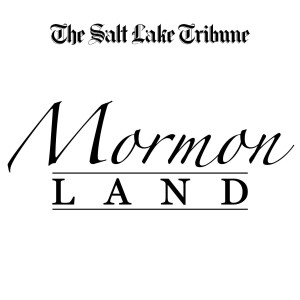
Wednesday May 12, 2021
Wednesday May 12, 2021
For 34 years, the Rev. Tom Goldsmith of Salt Lake City’s First Unitarian Church has been a prominent presence on Utah’s religious landscape.
At the helm of his left-leaning congregation, Goldsmith championed social justice causes like immigration reform and climate change.
He has shaped his congregation into a refuge for believers who do not feel at home in more conservative faiths, including the LDS Church.
Now he is retiring and will give his final sermon Sunday.
On this week’s show, he reflects on his ministry, including his dispute with Salt Lake City after it sold a chunk of Main Street to the LDS Church, congregant Tim DeChristopher’s monkey-wrenching of an oil and gas lease auction, and his church providing sanctuary to a Honduran immigrant.
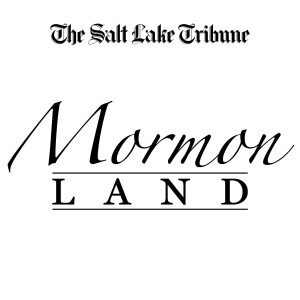
Wednesday May 05, 2021
Wednesday May 05, 2021
In recent years, The Church of Jesus Christ of Latter-day Saints has more fully embraced its teachings about Heavenly Mother, but she has been a part of the faith since virtually the beginning.
She has long been celebrated in song and verse, but now members and leaders have begun to openly discuss her and debate her qualities.
Two Latter-day Saint women, McArthur Krishna and Bethany Brady Spalding, have written a handful of children’s books about women in scriptures — poets, priestesses and prophets as well as judges and generals — but their most recent works are about Heavenly Mother herself.
On this week’s show, Krishna and Spalding discuss their two latest books, “A Girl’s Guide to Heavenly Mother” and “A Boy’s Guide to Heavenly Mother.”
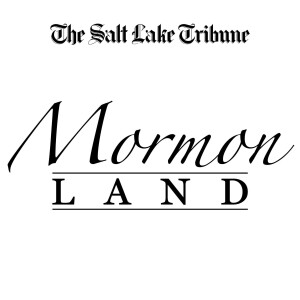
Wednesday Apr 28, 2021
Wednesday Apr 28, 2021
D. Michael Quinn, the noted historian who died last week at 77, had an outsized impact on academic explorations of the church’s past.
He was a prodigious researcher, who wrote 10 books and numerous essays. Though a believer in the faith’s founding events, Quinn resigned from church-owned Brigham Young University under pressure and subsequently was excommunicated from the faith in 1993 as part of the famed “September Six” for his writings about women and the priesthood, as well as about post-Manifesto polygamy.
On this week’s show, Ross Peterson, retired professor of history at Utah State University and former editor of Dialogue: A Journal of Mormon Thought, discusses Quinn’s life and work.
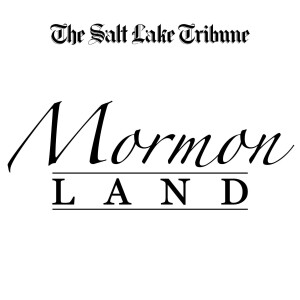
Wednesday Apr 21, 2021
Wednesday Apr 21, 2021
Natasha Helfer, a licensed sex therapist and member of The Church of Jesus Christ of Latter-day Saints, faced a disciplinary hearing Sunday on her membership status.
She was accused of apostasy for her public stances on masturbation, same-sex marriage and pornography, positions she says are consistent with the consensus in the mental health community.
Due to procedural differences, Helfer wound up not attending the hearing, so the council took place without her.
On this week’s show, Latter-day Saint sex therapist Jennifer Finlayson-Fife and a friend of Helfer, discusses those topics and the effect this move by church leaders may have on mental health professionals and their Latter-day Saint patients.
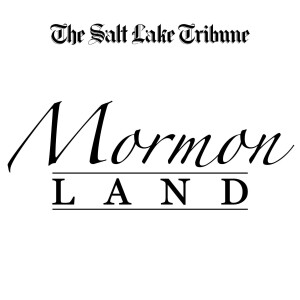
Wednesday Apr 14, 2021
Wednesday Apr 14, 2021
His father died when he was 7 years old. Raised by his mother and his maternal grandparents, he committed himself to hard work and diligent scholarship.
He became a star student, earned a degree at one of the nation’s most prestigious law schools and launched a legal career that would see him rise to the Utah Supreme Court with whispers that he someday could land a seat on the country’s highest court.
Then, virtually overnight, Dallin H. Oaks changed his life’s trajectory, trading his career in the law for a commitment to his Lord. He accepted a call to be an apostle in The Church of Jesus Christ of Latter-day Saints, a lifetime appointment in which he now stands as the top counselor to President Russell M. Nelson and next in line to assume leadership of the global faith.
On this week’s show, historian Richard Turley, talks about his recently released biography, “In the Hands of the Lord: The Life Story of Dallin H. Oaks,” which documents the personal journey of a church leader known for his devotion to religious liberty, his doctrinal dissections and his pointed preaching from the pulpit.
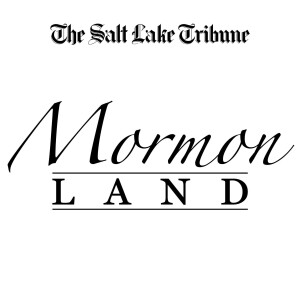
Wednesday Apr 07, 2021
Wednesday Apr 07, 2021
General Conference for The Church of Jesus Christ of Latter-day Saints was, for the third straight time, all-virtual due to the pandemic. That didn’t stop it from being timely and topical.
Those who tuned in heard about Christ and the resurrection (especially on Easter Sunday), the faith’s international footprint, repeated recognitions that most of the 16.6 million members are single, condemnations of cyberbullying and racist attacks, and an extensive exploration of the Constitution and the bounds of partisan politics.
And only two women spoke.
On this week’s podcast, Religion News Service columnist Jana Riess, author of “The Next Mormons: How Millennials Are Changing the LDS Church,” looks back at the highlights, lowlights and memorable moments from conference and what some of them may portend the church’s future.
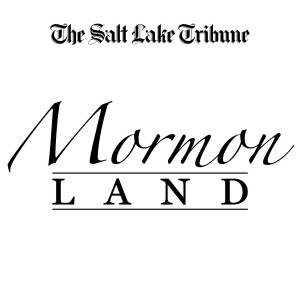
Wednesday Mar 31, 2021
Wednesday Mar 31, 2021
James Huntsman, a member of a prominent Latter-day Saint family, recently accused The Church of Jesus Christ of Latter-day Saints of fraud and sued to recover millions of dollars in tithing.
Huntsman alleges that the global faith has “repeatedly and publicly lied” about its use of billions of dollars in member donations solicited to pay for missionary work, temple-building and other educational and charitable operations.
Citing a whistleblower’s much-publicized IRS complaint about the church’s $100 billion “rainy day” fund, Huntsman’s federal lawsuit states that millions instead went toward commercial enterprises.
On this week’s podcast, Sam Brunson, a Latter-day Saint and a tax law professor at Loyola University in Chicago, talks about the lawsuit, the church’s investment reserves, its tax implications and the faith’s finances.
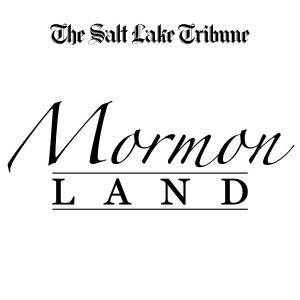
Thursday Mar 25, 2021
Thursday Mar 25, 2021
For the past year, members of The Church of Jesus Christ of Latter-day Saints, like others around the world, have dealt with a health care crisis that is both personal and societal.
Even without the coronavirus pandemic, however, members face moral choices about medical issues throughout their lives. They must decide whether to continue a doomed pregnancy, whether to test a fetus for a genetic disorder, whether to vaccinate their children for sexually transmitted diseases, or whether to discontinue treatment of a dying parent.
As they grapple with these personal questions — as well as the ethical questions surrounding health and healing in society at large — many people look to principles spelled out in their religion to provide answers and moral guidance. Latter-day Saints may turn to their 96-year-old prophet-president, Russell M. Nelson, who is a former heart surgeon with respect for medical and scientific wisdom.
On this week’s podcast, Courtney Campbell, a philosophy professor of religion and culture at Oregon State University and author of the recently published “Mormonism, Medicine, and Bioethics,” examines these medical topics — from abortion to birth control to vaccines and end-of-life care — and makes his case for why Latter-day Saints should support universal health care.
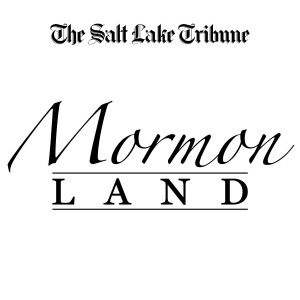
Wednesday Mar 17, 2021
Wednesday Mar 17, 2021
The Church of Jesus Christ of Latter-day Saints has announced that it will discontinue the “live” presentation of a religious ritual known as the “endowment” in its iconic Salt Lake Temple.
Instead of members acting out the scripted roles of Adam and Eve in the Garden of Eden, for instance, a film version used in other temples will be shown.
The faith’s governing First Presidency also said that historic wall murals, which help set the tone and understanding of the ceremony, had been removed.
Similar changes are planned for the Manti Temple, which houses a Mormon masterpiece by artist Minerva Teichert. The moves sparked an outcry from preservationists and many church members. Here to talk about the changes is Jody England Hansen, who served as a volunteer worker in the Salt Lake Temple before it closed to undergo renovation.
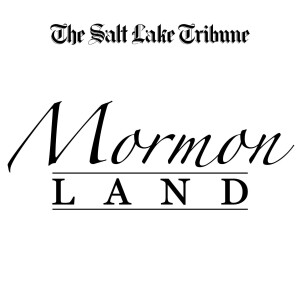
Thursday Mar 11, 2021
Thursday Mar 11, 2021
A new documentary, “Murder Among the Mormons,” has become a big hit this month on Netflix.
It recounts the 1980s story of document forger Mark Hofmann, who tried to upset the traditional historical narrative regarding the founding of The Church of Jesus Christ of Latter-day Saints by producing fake artifacts.
When he got entangled by his own financial double-dealing, Hofmann attempted to cover up his counterfeiting by setting off separate bombs that killed one of his clients, Steve Christensen, and Kathy Sheets, the wife of Christensen’s former business partner. He then injured himself in a third blast.
The three-part series offers not only a riveting whodunit dissection of deadly crimes but also a fascinating exploration of Mormon history.
On this week’s podcast, co-director Jared Hess, of “Napoleon Dynamite” fame, discusses the documentary, the haunting footage the filmmakers found, the phony discoveries Hofmann pulled off (including the big one he was plotting to peddle before his crimes unraveled), the callous calculations revealed in the mind of this killer, and the lessons Latter-day Saints and their leaders can take away from the whole sad saga.

More Mormon Land
There's more to "Mormon Land" than just the podcast. You can get access to episode transcripts, Tribune faith stories and more on Patreon.
Sign up for the free weekly Mormon Land newsletter to get the latest happenings about the church from around the world.
And follow Mormon.Land on Instagram.







